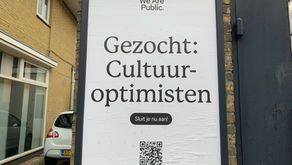Paid to Think
- Judith Weir
- Oct 8, 2017
- 2 min read

For the last half century, no less, Trinity College Cambridge has run a resident artists scheme; the grandly named Visiting Fellow Commonerships in the Creative Arts. This weekend the College hosted a lunch to celebrate fifty years since the first FCCA, composer Nicholas Maw, arrived in 1967. It’s a measure of the warmth generated that the lunch was attended by the vast majority of those who have ever held these posts; and also by a large posse of present College Fellows who must otherwise have plenty other things to do on a busy termtime Saturday. But talking over lunch and dinner is a crucial element of the residency, as I recall it.
This is a very low-profile scheme. You stay in the college for two years, doing whatever projects you choose. You’re not expected to teach, or to create publicity for the college’s generosity (!) Potential incumbents are scouted from recommendations and then the selection process must presumably become very competitive, because artists, writers and musicians are all eligible for a single two-yearly award. Viewing the list I was cheered to see that composers figure strongly, and there have been some interesting choices, including Deirdre Gribbin and Eriks Esenvalds . The newest fellow is Tom Coult.
Speaking to yet another composer fellow, Philip Grange, we agreed that it had been a unique period in our lives when we could just stay in our rooms all day if we liked, and work, or not; we were simply being paid to think. In fact during my time there (1983-85) I produced a huge hoard of manuscript and really began to write ‘my music’. Of course there was then no internet with which we could interrupt ourselves. During this period the College, ever generous, presented every full-time Fellow with a BBC Micro, one of the earliest personal computers. At high table, intelligent but confused people would be saying to each other 'but should I type GOTO?' 'Try GOSUB'. The day when we would check the weather and football scores several times an hour on such a device was far away, but presumably being worked on by some brilliant mathematical type in an adjacent room.






